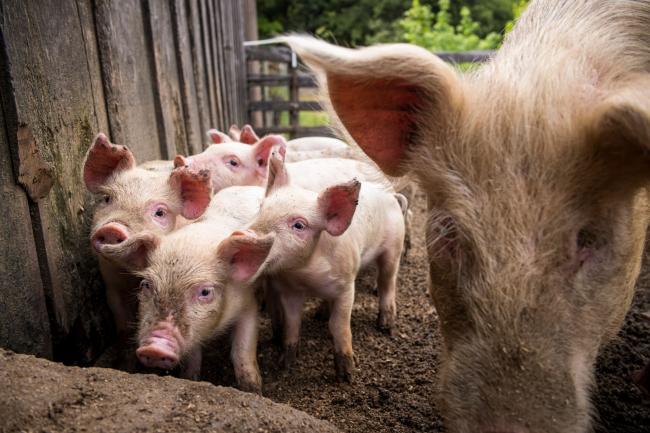(Bloomberg) -- American pig farmers are losing so much money that some may soon start selling the corn they would normally use to feed animals, according to the world’s largest hog producer.
It’s a sign that producers will soon take steps to shrink their herds, with growers losing as much as $80 a head, said Shane Smith, chief executive officer of Smithfield Foods. Demand from top buyer China is waning as the cost to feed animals is surging.
A drought in the Midwest has deteriorated crops, with corn at its worst conditions for this time of year since 1992. That’s squeezing profits and making it more appealing for growers to sell the grain, which has risen more than 20% from its May lows.
“There’s a concentration of people in the industry who grow their own corn, they grow their corn and they feed it to the animal,” he said in an interview Wednesday at the Wall Street Journal’s Global Food Forum in Chicago. “They’re going to have to make a decision. Do I sell my corn and just forget about the animal?”
US growers usually only start shrinking herds when they face cash flow losses, and that is already happening, Smith said. He declined to comment on whether Smithfield, owned by Hong Kong-listed WH Group (OTC:WHGLY), is planning to cut back as well.
The US meat market is facing a glut that may take until the end of next year and into 2025 to normalize, he said. That’s all happening just as only 55% of the US corn crop was rated good to excellent, the lowest for this time of year in more than three decades, according to data from the US Department of Agriculture.
California Rules
To make matters worse, California — which consumes about 15% of the nation’s pork — passed a law requiring meat sold in the state to come from animals raised in larger spaces, raising costs for producers. Beginning July 1, only meat from animals raised under the new regulations can be sold in the state, although pork that’s already in the supply chain by that date can be sold until the end of the year, the California Department of Food and Agriculture said Wednesday.
Smithfield stopped slaughtering hogs at its only California plant earlier this year. Smith said he’s now worried other states may add their own laws, forcing more costly farm conversions.
“My concern is that at some point without intervention from the USDA or other federal bodies, we’re going to end up with a patchwork of 50 different rules to govern how food is processed, it doesn’t just have to be pork or chicken,” he said.
Meanwhile, a lack of available workers for US meat plants and little movement in immigration policy means the labor issue won’t be solved any time soon, he said.
“This industry is in an incredibly difficult cycle,” Smith said.
(Adds comments on California in eighth paragraph.)
©2023 Bloomberg L.P.
